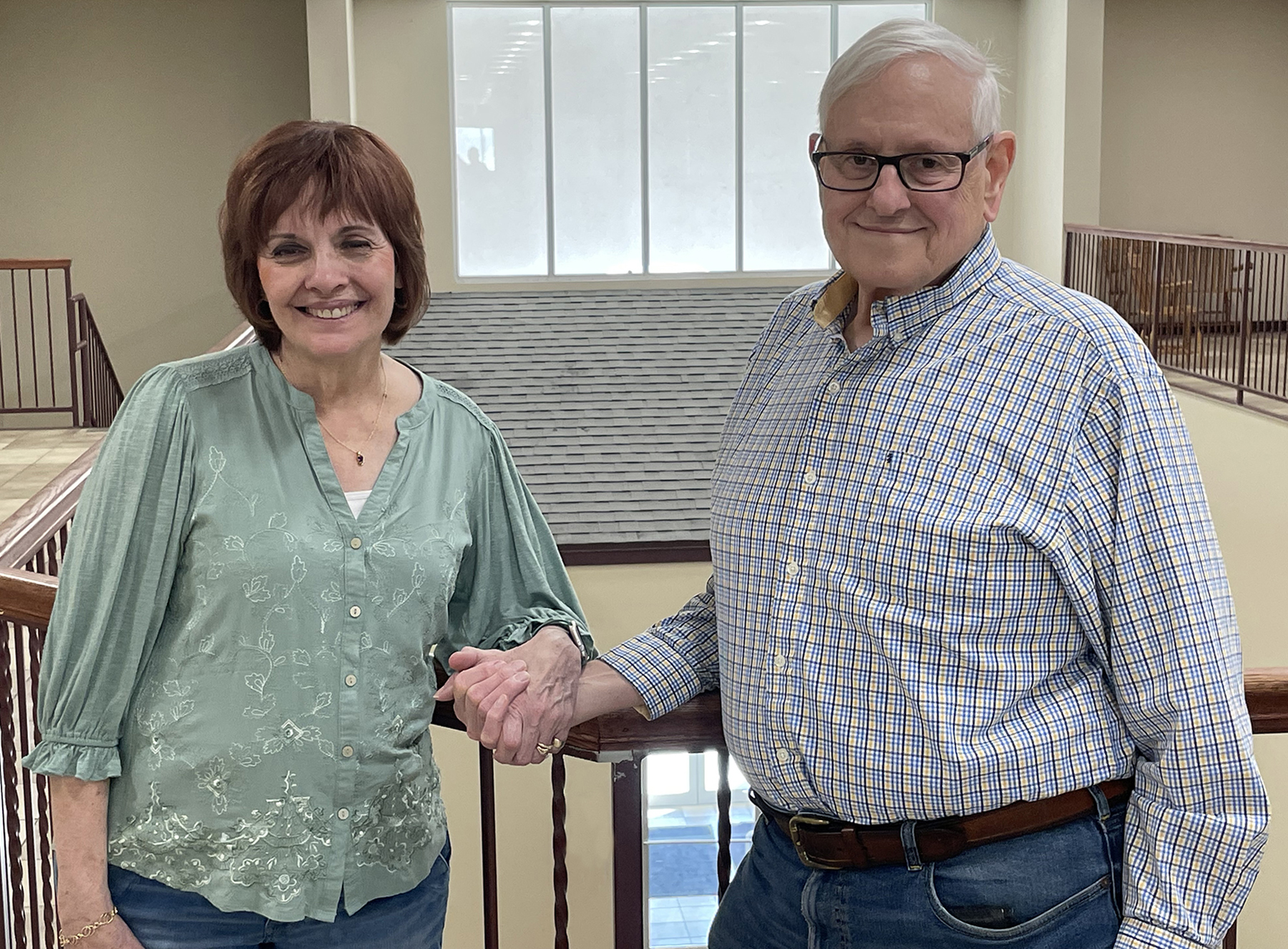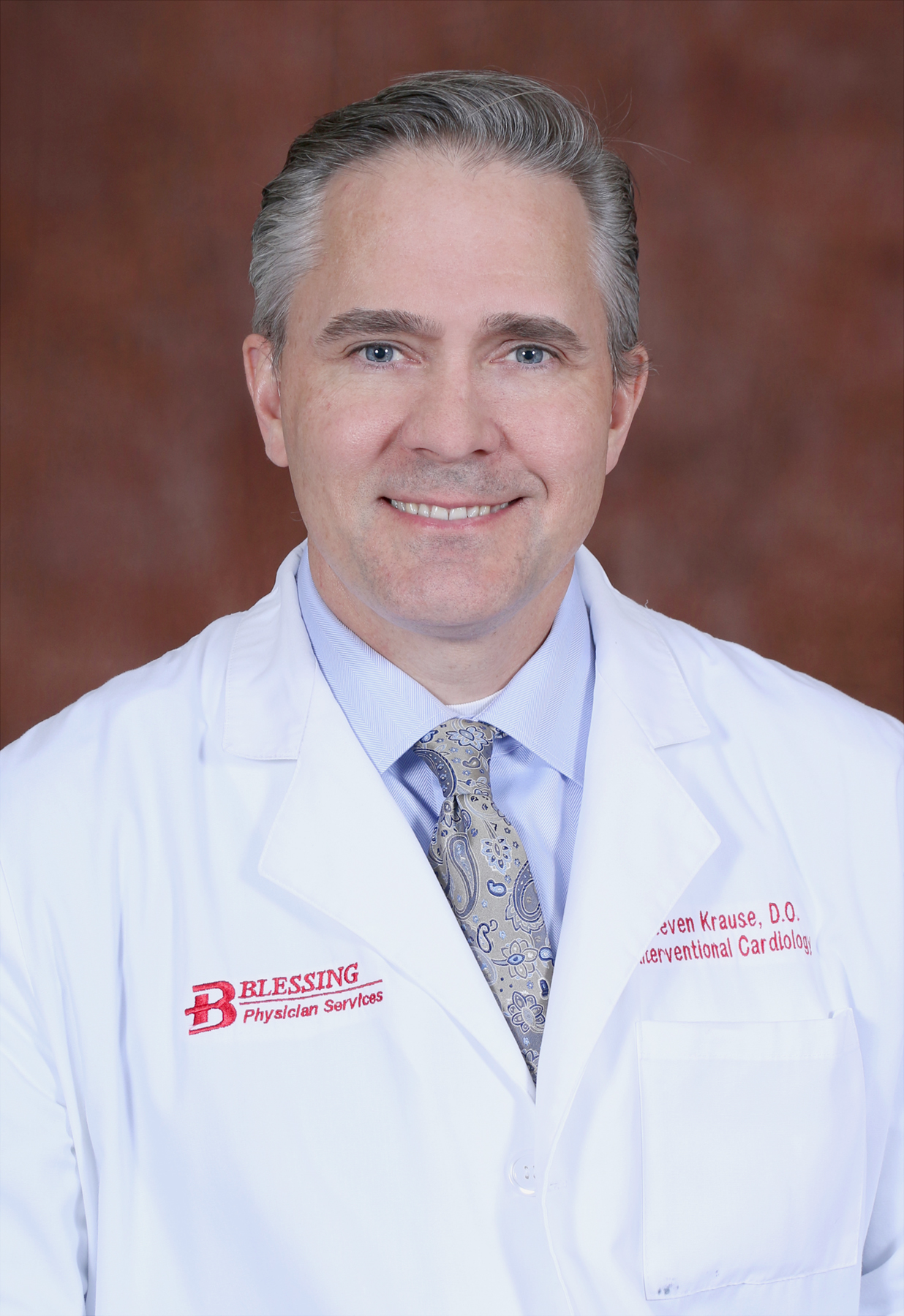
As a substitute teacher, Donia Gardner has to be prepared for a call to work at a moment’s notice. But even with 24 years’ experience there was no way to prepare for her day at Quincy’s Denman Elementary School on Friday, January 31, 2025.
Her coworkers were prepared, however, and it saved Donia’s life.
“She was in the right place at the right time,” said her husband of 41 years, Curt. “She was surrounded by people who knew what to do.”
Donia’s story
She remembers the first half of that day substitute teaching, including joining her students in the classroom for indoor recess on a brutally cold day. Her memory freezes after that.
“I don’t remember anything between falling out of the chair and waking up in a hospital bed,” Donia said.
Wait. What happened?
With no signs or symptoms, Donia’s heart stopped. One of her students notified another staff member that her teacher was on the floor. Fourteen people responded. Three members of the group administered CPR and shocks from the school’s automated external defibrillator (AED) in an effort to jump start Donia’s heart while waiting for the ambulance and first responders to arrive.
Alerted by school staff of his wife’s medical emergency, Curt remembers one of the texts he received on the way to the hospital.
“It said, ‘She’s breathing,’” he recalled. “I was getting that this is really bad because if she is breathing now that meant she was not breathing before.”

After arriving at the hospital, Curt and Donia received some good news. Tests showed no heart damage. But, one of the doctors who responded to the Emergency Center upon Donia’s arrival, Blessing Health cardiologist Steven Krause, DO, wanted a little more information about her condition. He asked to see the print out from the memory card from the AED used during the incident.
“I was with him as he was looking at it,” said Curt. “Dr. Krause said she was lucky to be alive.”
What happened?
Donia suffered a Sudden Cardiac Arrest (SCA).
SCA isn't the same as a heart attack. During a heart attack blood flow to a part of the heart is blocked. Blockages don’t cause SCAs. The cause is a sudden loss of all heart activity due to an irregular heart rhythm. Breathing stops and the person becomes unconscious. Without immediate treatment, SCA can lead to death.
National statistics show more than 365,000 people in the United States have a cardiac arrest outside of a hospital annually. Only about 10% of those people survive, even with paramedic treatment.
Receiving bystander CPR and AED treatment in addition to paramedic care – as Donia had - increases the chance of survival by nearly 30%.
Even though she has a history of heart disease in her family, the exact cause of Donia’s SCA is unknown. During her six-and-a-half-day hospital stay she received an implantable cardioverter defibrillator (ICD) during a procedure by cardiac electrophysiologist Oleg Yurevich, MD. The ICD will deliver an electrical signal to her heart should it ever be needed in the future to help it maintain a healthy rhythm.
Most of Donia’s stay at Blessing was in the Cardiovascular Unit.
“That floor is fantastic,” she said.
“They were all top-notch professionals.” Curt added. “It is hard to imagine how they could have done a better job than they did.”
Donia’s coworkers honored, too
The three members of the responding Denman School staff who performed CPR and used the AED - Brad Bergman, Kylee Wedding and Sheila Benz.- were recognized for their response by the Blessing Heart and Vascular Center and the Adams County Ambulance Service. Dr. Krause spoke at the presentation.
“You learned CPR, but when it happened – to be calm and to get things moving - start CPR and remember to get the defibrillator, that was wonderful. You saved a life and should be very proud,” he said.
Curt agreed wholeheartedly.
“They knew what to do,” he said. “There is a world of difference between being well trained and knowing how to apply these skills and devices. That to me is the lesson here. Know where the equipment is and how to use it properly. That saved her life.”
While Donia doesn’t remember much after her heart stopped beating, she knows she owes her life to her coworkers.
“The way every person just stepped in and did what they needed to do when they needed to do it,” she said. “It still blows my mind that there were 14 people who help me directly.”
Something else that blew Donia’s mind - she was a substitute teacher years ago for Kylee Wedding, one of the staff members awarded for their response to her SCA. Which led to another lesson from this situation.
“You better be nice to each student you substitute with because one of them might save your life someday,” Donia said with a smile.
